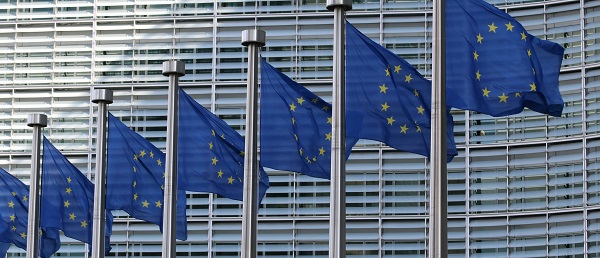Business
Plan That Whole World Seemed To Hate Wasn’t Even Reviewed, EU Officials Now Admit


From the Daily Caller News Foundation
European Union (EU) officials are pushing forward with a major climate proposal, even though they apparently did not bother to study the policy’s costs or environmental impacts, according to Politico.
In July, the European Commission unveiled a sweeping plan to slash the EU’s carbon footprint by 90% by 2040, partly by allowing member states to use carbon credits earned by funding climate projects in developing countries to offset emissions. Despite the policy’s potentially massive economic and environmental ramifications, EU officials admitted they did not conduct an internal analysis of its impacts before proposing it, Politico reported.
The Commission admitted its climate department, DG CLIMA, held no documents analyzing the program’s cost or effectiveness when Politico requested internal assessments of the policy’s potential impacts.
Dear Readers:
As a nonprofit, we are dependent on the generosity of our readers.
Please consider making a small donation of any amount here.
Thank you!
The idea was spearheaded by Climate Commissioner Wopke Hoekstra, but climate department head Kurt Vandenberghe admitted in June that they were “not entirely prepared” for the move, Politico reported. Key details, including how much the credits will cost and whether taxpayers or companies will foot the bill, also remain unclear, according to the outlet.
U.S. officials have raised broader concerns about the EU’s climate agenda, warning that certain regulatory mandates could impact American businesses. Some have called on the Trump administration to examine the implications of the EU’s environmental policies as part of its trade negotiations.
Critics argue that carbon credit policies impose significant compliance costs on businesses, forcing them to participate in a system that many consider deeply flawed. Companies have spent millions on carbon offset projects that deliver little to no real emissions reductions, and in some cases, have exaggerated or outright fabricated their environmental impact.
“The cost of high-quality carbon credits that deliver sustainable and long-term mitigation outcomes can be very high,” the EU’s scientific advisory board on climate change warned about the carbon credits in June. “Purchasing such credits from abroad could therefore come at the expense of domestic investment opportunities.”
European Commission spokesperson Anna-Kaisa Itkon told the Daily Caller News Foundation that the Commission consulted various stakeholders on its carbon credit proposal and that an impact assessment would be conducted.
“Following extensive engagement on the part of the Commissioner with Member States, Members of the European Parliament and stakeholders since then, the Commission’s proposal to amend the European Climate Law includes provision to consider the possible inclusion of a limited amount of high-quality international credits in the design of the post-2030 policy framework,” Itkoen said.
Business
Canadians want to cut governor general’s budget


The Canadian Taxpayers Federation is calling Prime Minister Mark Carney to cut the governor general’s budget in the wake of new polling from Leger polling.
“Nearly half of Canadians believe the governor general’s budget is too big and should be reduced,” said Nicolas Gagnon, Quebec Director for the CTF. “When families are struggling with rising prices, it’s wrong to rubberstamp budget increases for a completely ceremonial office.”
According to its latest annual report, the governor general’s office spent $36 million in 2023-24.
The governor general receives a $378,000 salary, a taxpayer-funded clothing allowance, a lifetime pension of about $150,000 annually and a $200,000 annual expense account even after leaving office.
The Leger poll asked Canadians what should happen to the governor general’s budget and found that:
- 49 per cent want to reduce the Governor General’s budget
- 19 per cent would keep it the same
- 13 per cent want to increase it
- 19 per cent are unsure
Among those with an opinion, nearly 60 per cent of Canadians favour a reduction.
“The governor general already receives a massive salary, lives in a taxpayer-funded mansion, flies on private jets and still gets a six-figure annual expense account after retirement,” Gagnon said. “Canadians are sending the prime minister a clear message: enough is enough.”
To view the poll results, click here.
Business
EU Commission admits deleting secret COVID contract texts to Pfizer CEO

From LifeSiteNews
The EU Commission confirmed messages in 2020 to pharma giant Pfizer’s CEO were deleted after a multibillion-dollar COVID vaccine deal was agreed between the EU and Pfizer.
The European Commission has confirmed that hidden messages related to COVID shot contracts between commission leader Ursula von der Leyen and the CEO of pharmaceutical giant Pfizer Albert Bourla have been deleted.
A document sent to the New York Times last week confirmed that the commission found the messages between Bourla and von der Leyen in 2021 but that they were “short-lived” and not considered to be worth archiving. The content of text messages was limited to organizing calls between the two individuals, the EU body claimed. The document also stated that von der Leyen’s phone has been replaced several times without data transfers since then.
The text messages in question were reportedly sent between Bourla and von der Leyen in 2020, ahead of the multibillion-dollar COVID vaccine deal between the EU and Pfizer.
In May, the EU Court of Justice ruled that the European Commission violated transparency rules by not releasing the private texts since it gave no “credible explanation” for why the messages did not contain important information. The New York Times, which first reported on the existence of the texts, sued the commission in 2023 after it rejected a Freedom of Information Act request asking for the messages to be released.
READ: EU court rules commissioner broke law by not disclosing texts with Pfizer CEO
Von der Leyen has been under heavy criticism for the text message scandal known as “Pfizergate” since 2023. In July this year, von der Leyen survived a vote of no confidence in the European Parliament that was prompted by the scandal.
Euronews wrote in its report of the deleted messages: “The question arises: If it had long been clear that the text messages were of interest and had been requested by a press agency, why were the messages and the cell phone destroyed in the first place?”
Critics from the left and the right wing have accused von der Leyen of centralizing too much power in her commission and running an authoritarian regime, including the monitoring of all of her staff’s communications. She has also been criticized for a lack of transparency, illustrated by Pfizergate, and for the alleged misuse of EU funds.
“What exactly was in the messages and whether they were indeed ‘fleeting’ organizational text messages will probably never be clarified now that they have been deleted,” Euronews concluded.
-

 Business2 days ago
Business2 days agoCanada offering 12 months of income to LGBT ‘refugees’
-

 Business1 day ago
Business1 day agoCarney government plans to spend millions convincing young Canadians about ‘climate emergency’
-

 Business11 hours ago
Business11 hours agoDisney Settles Star Wars Actress Gina Carano’s Lawsuit
-

 Bruce Dowbiggin15 hours ago
Bruce Dowbiggin15 hours agoCarney’s Canada Enters The Buyers Remorse Phase Of Elbows Up
-

 Daily Caller11 hours ago
Daily Caller11 hours agoHow Trump And Musk Changed The Energy Conversation
-

 Banks2 days ago
Banks2 days agoTrump admin preparing executive order to stop debanking of conservatives
-

 Business2 days ago
Business2 days agoCarney defends internet censorship bill, tells Canadians to rely on CBC for news
-

 Health16 hours ago
Health16 hours agoRFK Jr. cuts $500 million for mRNA vaccine projects, says no new contracts will be issued






